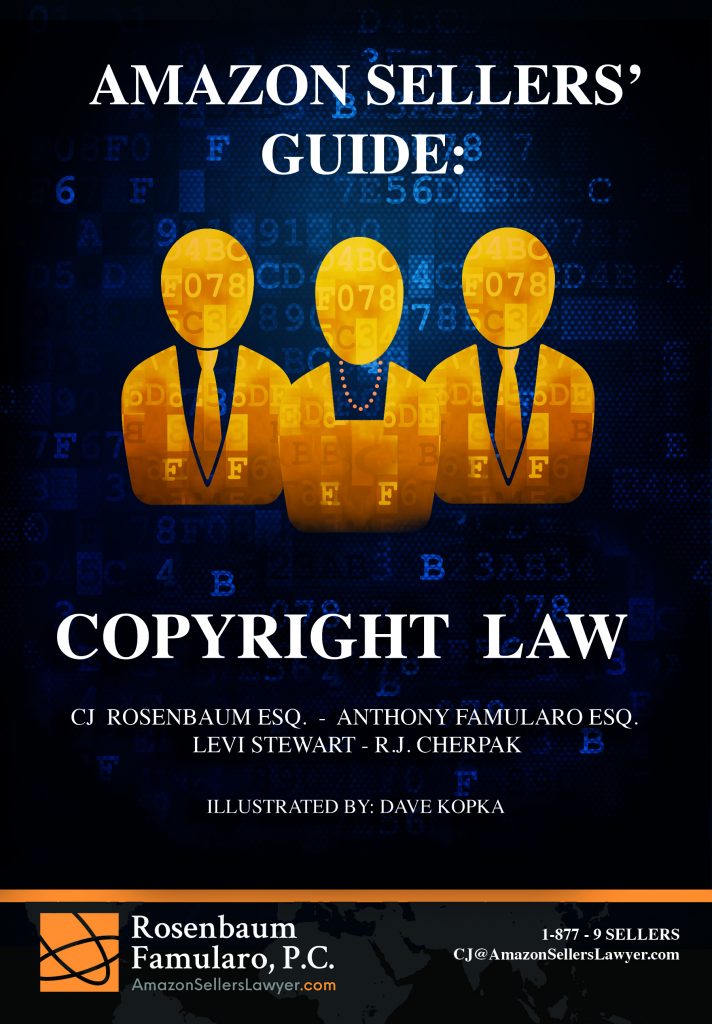Copyright complaints on Amazon can cover: literary, musical, dramatic works, pantomimes, choreographic works, pictorial, graphic, sculptural works, motion pictures, sound recordings, and architectural works.
Copyright complaints, when it comes to Amazon sellers, have to do with verbiage, copying and pasting someone else’s words or images / pictures. You cannot use somebody else’s pictures when you’re creating a listing. You need to create your own. They have to be Amazon compliant.

Rosenbaum, Famularo & Segall, PC helps ecommerce sellers develop & protect intellectual property rights.
This book focuses on teaching Amazon sellers about United States copyright law.
It’s important to know how to properly file a copyright & to understand what conditions a copyright protects.
We’ve reinstated thousands of accounts, obtained retractions of the vast majority of copyright complaints asserted against our clients, and resolved many issues with Amazon’s lawyers & staff in the US, India, Ireland, Costa Rica & United Kingdom.
Donate to Download: Amazon Sellers' Guide to Copyright Law
What is Copyright Infringement?
Copyright infringement is violating an owner’s exclusive rights to a work of art, granted by the federal Copyright Act, by the use of protected works without permission. The use of copyrighted works is unauthorized unless consent is given by the owner. A copyright owner has the right to reproduce the work, prepare imitations of their copyrighted work, distribute their work, and perform or display the work publicly. To demonstrate a valid copyright infringement claim, a plaintiff must show ownership of a copyright and show that the defendant has copied elements of the work that are original.
In Amazon cases, courts have denied motions to dismiss when facts are clearly stated to prove the defendant is actually aware they’re infringing on copyright laws or there’s proof of complete disregard for whether they’re infringing on copyrights or not. On the other hand, claims have been dismissed where insufficient facts have been pleaded to establish that the plaintiff possessed a valid copyright or that the defendants reproduced copyrighted work. A reasonable juror must be able to infer from the facts stated that the defendants may have violated copyright laws.

